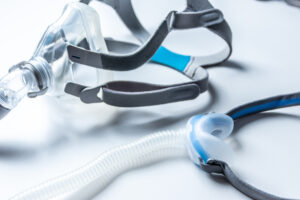
A comprehensive guide to comprehending the various categories of CPAP masks
Choosing the right CPAP mask can be a daunting task, especially if you’re new to purchasing one, due to the wide variety of options available

Sleep Apnea and High Blood Pressure: Understanding the Connection
Sleep apnea is a complex issue that affects multiple intricate systems in our bodies, including the respiratory, cardiovascular, and nervous systems. It is often misconceived as just snoring, but it can cause temporary cessation of breathing and occurs numerous times each night if excess neck tissue collapses the airway during sleep.
The repeated deprivation of oxygen due to sleep apnea can have adverse effects on the body, including elevated blood pressure. Typically, blood pressure drops at night, but with sleep apnea, it may not decrease, leading to high blood pressure. Each time oxygen levels decrease, blood pressure rises, and the heart works harder to normalise it, putting more strain on the heart. High blood pressure can lead to additional health complications like heart attack and stroke.
Detecting sleep apnea can be challenging, and many individuals may not realise they have it until informed by someone else. It is vital to take such feedback seriously as sleep apnea is linked to life-threatening conditions. Despite receiving feedback, some individuals may be in denial about their condition, making it critical to recognize the symptoms of sleep apnea and seek medical attention.
At Agility Medical (AM), we prioritise good health and offer various devices to help you maintain it. If you want to learn more about how we can assist you in maintaining your health, please email us at info@agilitymedical.com.au.
This blog post contains general information about medical conditions and potential treatments. It is not medical advice. If you have any medical questions, please consult your doctor.

Choosing the right CPAP mask can be a daunting task, especially if you’re new to purchasing one, due to the wide variety of options available

When we think about leading a healthy lifestyle, we often consider healthy eating and regular exercise. However, we must also prioritize rest and recovery, and

Obesity is a pressing issue not only for adults, but also for children and adults worldwide. In Australia, approximately 67% of adults are considered overweight

Delivery with in 3-5
working days

Return Your Order

We accept all major
credit cards

Customer service and
support